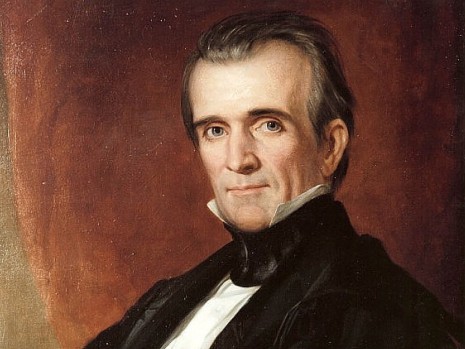saintgeorgesflushing.org – James Knox Polk, the 11th President of the United States, served from 1845 to 1849. Often referred to as the “Expansionist President,” Polk’s tenure was marked by significant territorial growth and the fulfillment of the Manifest Destiny, the belief that the United States was destined to expand its dominion and spread democracy and capitalism across the entire North American continent.
Early Life and Political Career
Born on November 2, 1795, in Pineville, North Carolina, Polk moved to Tennessee as a child. He graduated from the University of North Carolina and began his legal career before entering politics. Polk was a staunch supporter of Andrew Jackson and became a key figure in the Democratic Party. He served in the Tennessee legislature and later in the U.S. House of Representatives, where he became Speaker of the House, making him the only person to hold both the Speaker and the Presidency .
Presidency and Expansionist Policies
Polk’s presidency was characterized by his aggressive pursuit of territorial expansion. He is best known for his role in the Mexican-American War, which led to the acquisition of vast territories in the Southwest, including California and New Mexico. This expansion was part of his broader goal to extend the United States’ borders to the Pacific Ocean, fulfilling the vision of Manifest Destiny.
Polk also played a crucial role in the negotiation of the Oregon Treaty with Great Britain, which established the 49th parallel as the boundary between the United States and Canada. This agreement was significant as it resolved a long-standing territorial dispute and expanded the U.S. territory to the Pacific Northwest.
Domestic Policies and Legacy
Domestically, Polk focused on reducing tariffs and reforming the banking system. He reinstated the Independent Treasury system, which aimed to separate the government’s finances from the banking system, a policy that had been dismantled by his predecessors.
Polk’s presidency was also marked by his commitment to a single term, a promise he kept. He did not seek re-election, retiring to his home in Nashville, Tennessee, where he died on June 15, 1849, at the age of 53.
Conclusion
James K. Polk’s presidency was a pivotal period in American history, marked by significant territorial expansion and the solidification of the United States as a continental power. His policies and actions during his term laid the groundwork for the nation’s future growth and development. Polk’s legacy is complex, reflecting both his successes in expanding the nation’s borders and the controversies surrounding his methods and policies.
